
There are two areas that companies are focusing on today: on the one hand, they want to bring more innovation to their processes and, on the other, they want to improve the way they manage their resources and departments. It is known that the more organized a business is, the more likely the success of the strategies. In this case, the help of ERP software can totally make a difference.
An ERP is a business resource management platform, which helps companies centralize all relevant information from departments such as sales, marketing, accounting, human resources, and inventory, among many others.
“ERP applications automate and support various administrative and operational business processes across multiple industries, including a company's line of business, customer service, administrative and asset management aspects. ERP implementations are complex and expensive endeavors, and some organizations struggle to define the business benefits,” Gartner explains of these systems.
Implementing an ERP in a company brings innovation to the commercial area, increasing the efficiency of the processes. It also allows you to standardize all flows and processes while helping to reduce IT costs.

Odoo and SAP: two of the most used ERP platforms
In the technology market there are many ERP software options, two of the most demanded are Odoo and SAP. In this article, we will talk in detail about the characteristics of each of these platforms, what they offer and the differences between each one.
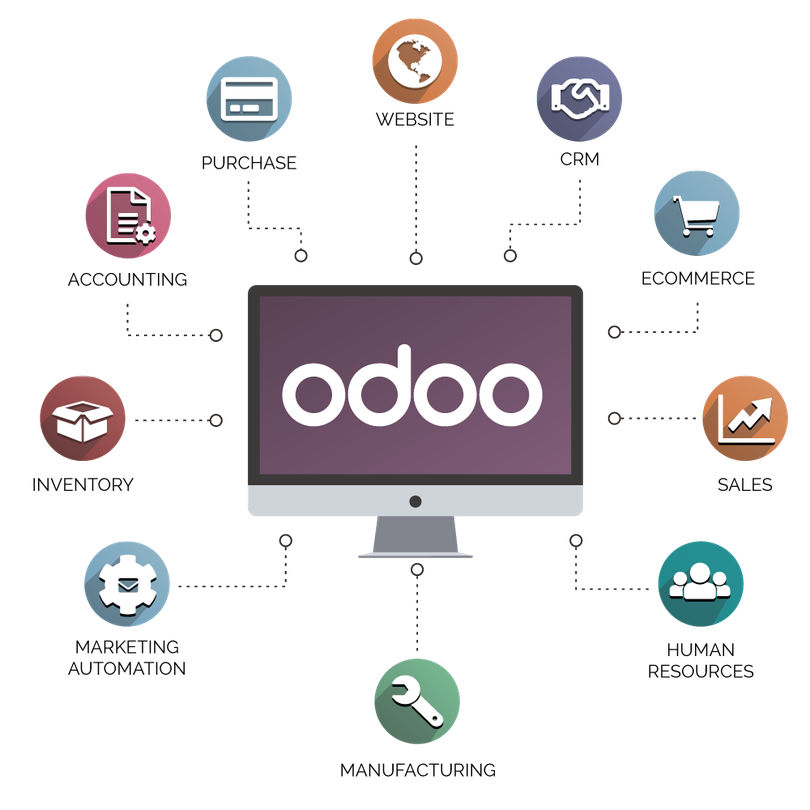
Odoo ERP Features
Odoo is an open-source ERP software, launched on the market in February 2005. For more than a decade, the developer community from all over the world has contributed to updating and improving this software, which has become a favorite of companies for its high customization capacity and easy handling.
And speaking of customization, it is one of the strengths of Odoo ERP: it allows you to enable service modules according to the company's needs. It offers modules for sales, e-commerce, projects and help desk, finance, and marketing, as well as modules focused on operations.
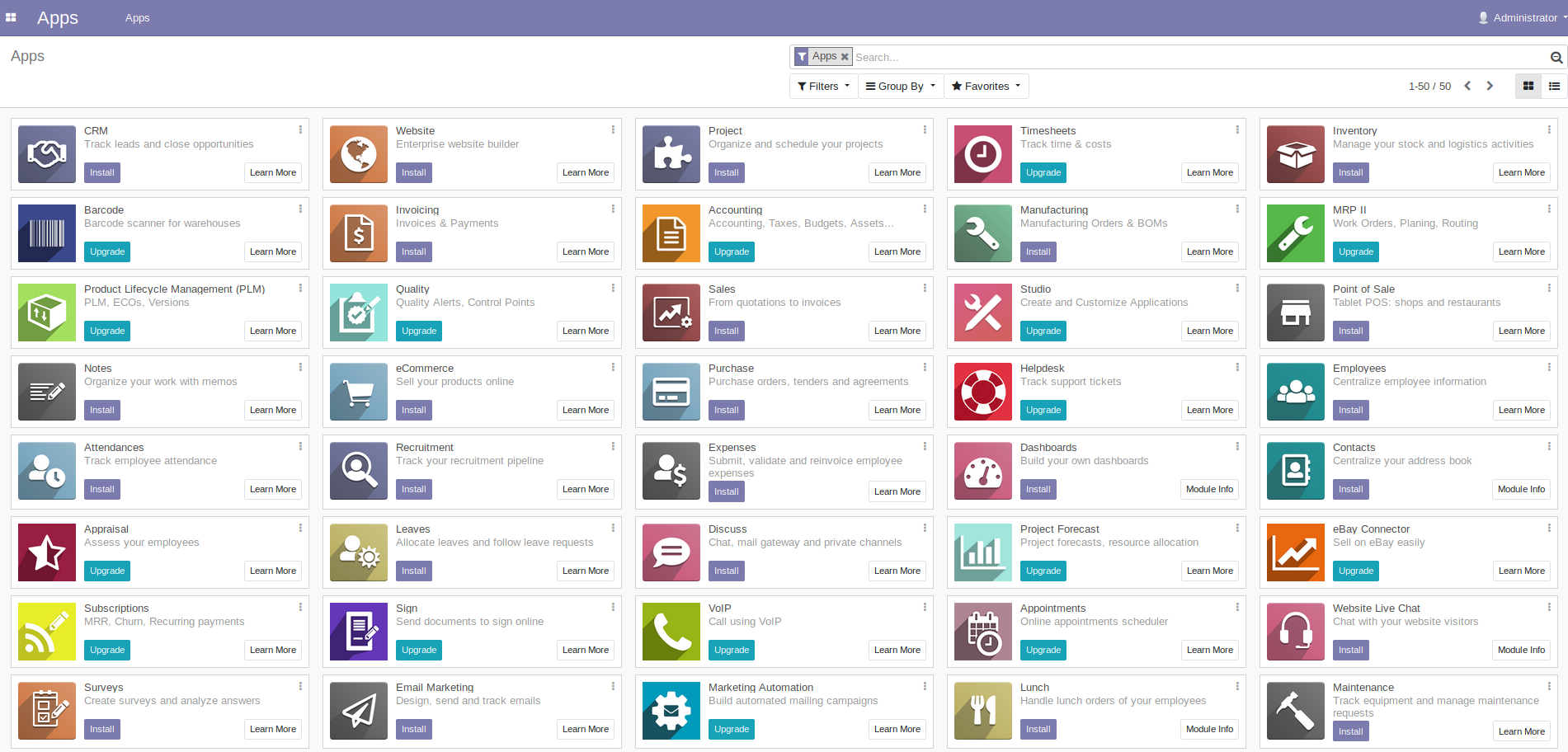
The idea of Odoo ERP is that companies do not have to jump from one platform to another, unconnected, to find the data they need to carry out a task. The objective of this software is to simplify the flows and, in fewer steps, the team does its work efficiently.
- It offers a wide range of modules and extensions to extend the functionalities of the ERP.
- In Odoo ERP you can manage multiple companies, multiple warehouses, and multiple websites.
- There are no limits on customization. Companies can configure Odoo ERP exactly how they need it.
- The user interface is simple, with an intuitive design that makes handling easy.
- Odoo ERP achieves the automation of business processes thanks to the use of artificial intelligence.
- The price-performance ratio is unbeatable, paying only for the modules you are using.
- One of the strong points of Odoo ERP is the innovative inventory management system, with integrated barcodes and QR codes.
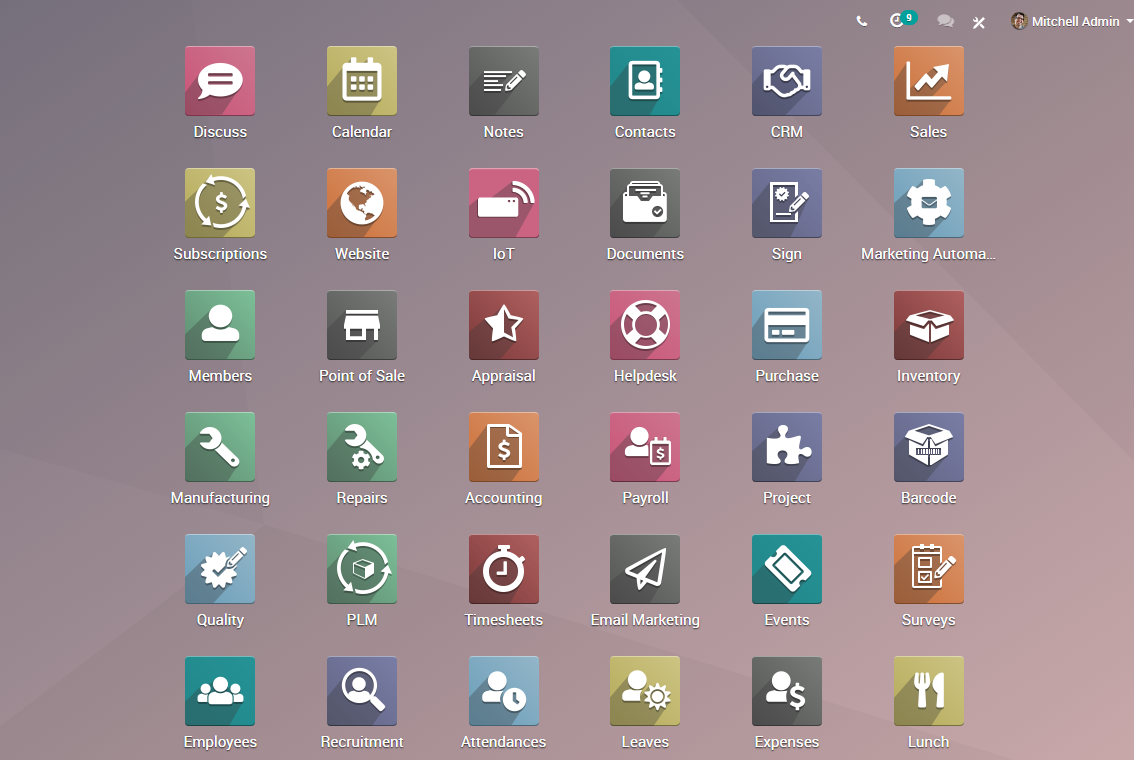
SAP features
Worldwide, SAP is one of the most powerful business management platforms. The company was founded in 1972 and has been offering business solutions to companies ever since.
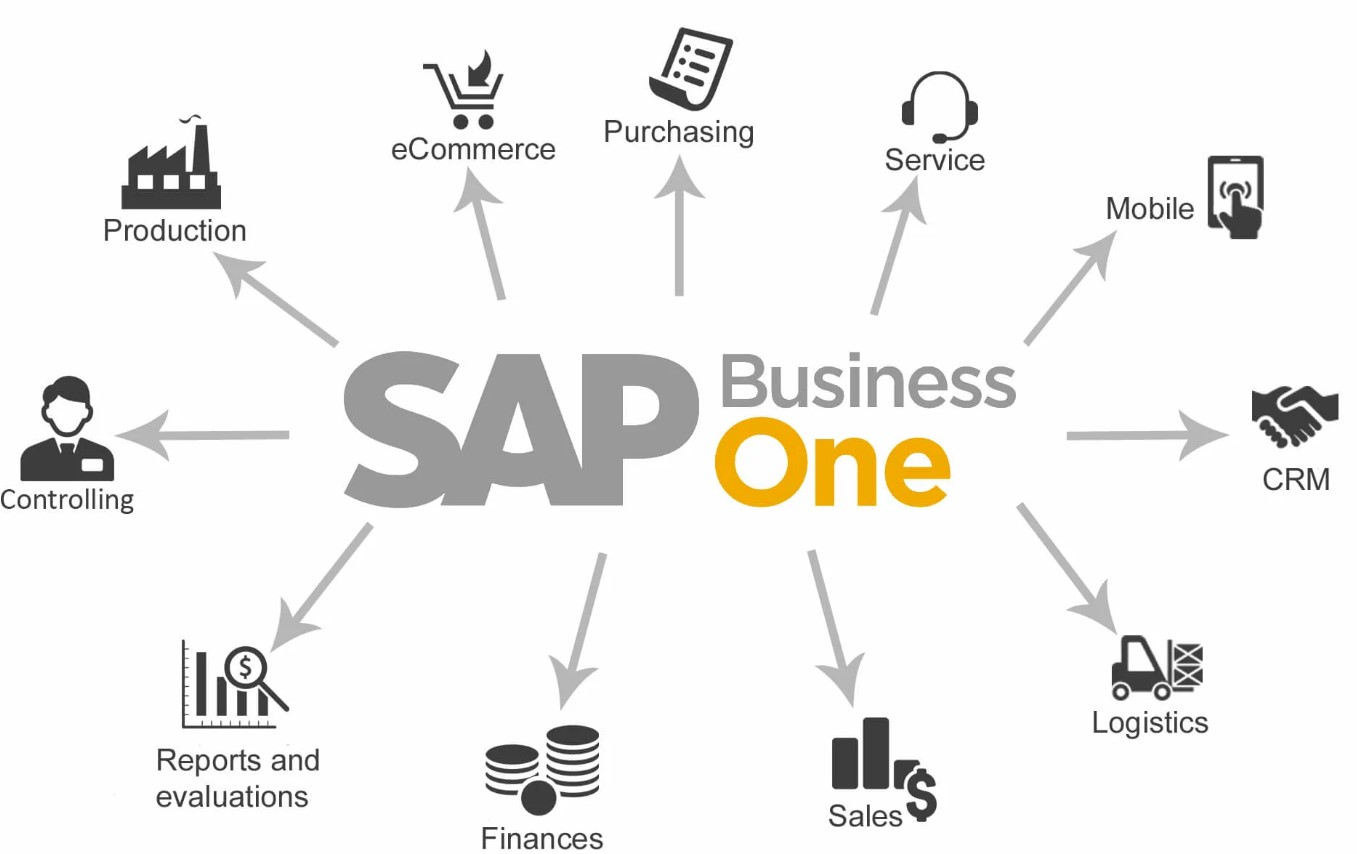
“Integrated enterprise applications connect all parts of a business with an intelligent suite on a fully digital platform, thus replacing the legacy process-driven platform”, SAP explains in its documentation. Today, SAP has more than 230 million cloud users, with more than 100 solutions available to its customers.
What SAP does is centralize business data management so that the entire work team has access to updated information. Having the data at hand is essential to create good business strategies, as well as make the best business decisions.
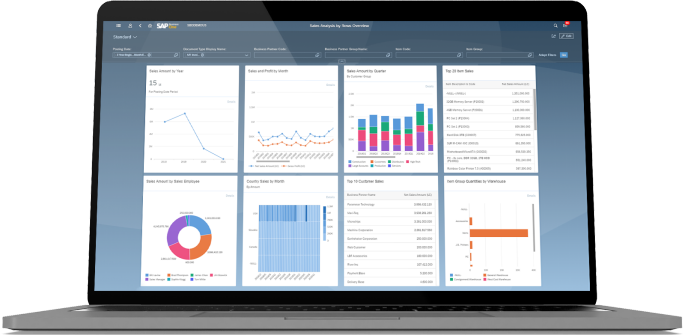
With this you get:
- Better manage complex processes
- Easy access to information in real time
- Speed up workflows
- Improvement of operational efficiency
- Productivity increase
- Better customer experience
SAP can be adjusted to any type of company, be it small, medium or large. It is a robust software that is capable of offering business solutions according to the industry, adapting to almost any category.
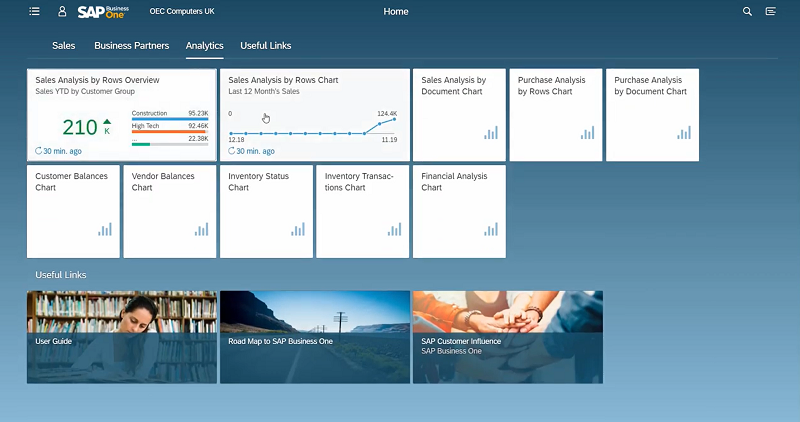
- SAP offers tools for financial management, so that decision-making is more profitable, errors are reduced and profit margins and productivity are increased.
- It also makes available to companies tools for managing sales and customer management, monitoring customers, opportunities, as well as marketing campaigns.
- From SAP, you will be able to manage everything related to inventory and purchases, with personalized reports that show the information you need.
- With the Business Intelligence functionality offered by the SAP platform, you will be able to create accurate reports with the company's data, with analysis and reporting tools.
What are the differences between Odoo and SAP?
SIZE OF THE COMPANY
Odoo is more aimed at small and medium companies due to its daily data processing capacity. SAP is designed to process thousands or millions of orders daily, more tied to large companies and corporations.
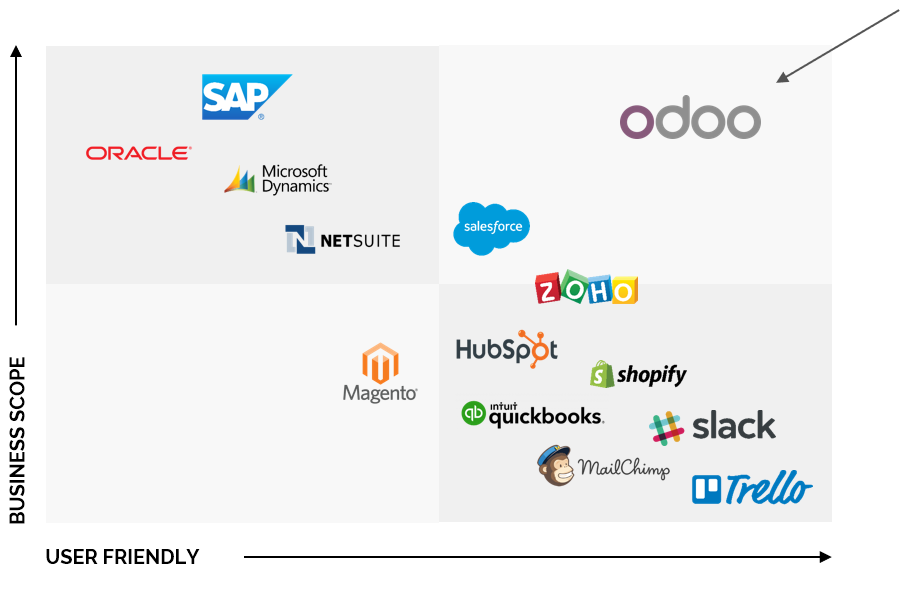
BUDGET
Odoo has versions that can be adjusted to all kinds of budgets, especially those small or medium-sized companies that need to watch their expenses. SAP can be a bit more expensive, due to its annual fees and implementation. The cost per user is usually higher as well.
FLEXIBILITY
In this aspect, Odoo and SAP differ considerably. Since the objective of Odoo is to always adapt to the growth of companies, which is why it is highly flexible. In the case of SAP, the priority is strict compliance with the processes, not so much flexibility.
PROGRAMMING LANGUAGE
Odoo is written in Python and SAP is written in C, C++, Java and ABAP, the high level language created by SAP.
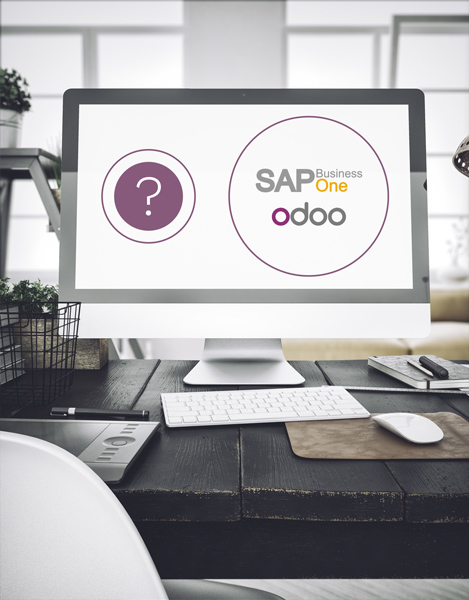
ACCOMMODATION
Regarding hosting, Odoo allows you to install your platform on its servers at no cost. SAP charges a license fee to occupy its servers.
RESOLUTION OF ERRORS
One of the big differences is that Odoo, being open source, you can count on a huge community of developers who can help you. On the other hand, with SAP, that does not happen since it is a closed source software and only the technical support engineers of this company can handle it.
Do you need SAP experts? At Rootstack, we have +10 years of experience supporting companies in their digital transformation. Contact us!
We recommend you on video

